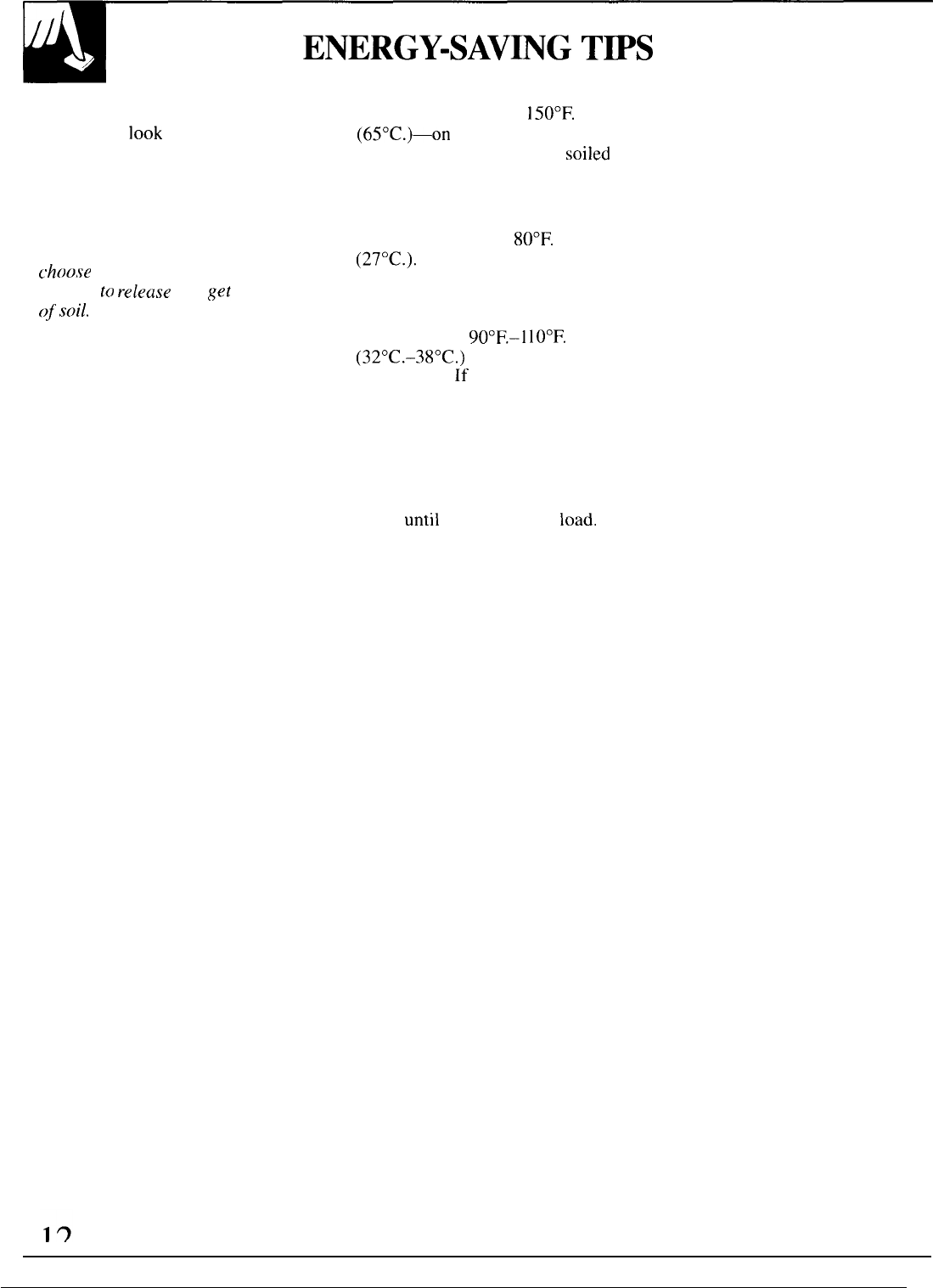
ENERGY-SAV~G
T~S
If your clothes and household
items don’t
look
clean and fresh
after washing, you will probably
rewash them... and that means
you’ll waste energy. Remember
to sort your clothes carefully, and
load them properly, select correct
cycles, use enough detergent and
choose
a water temperature warm
enough
to
relea.ve
and
get
rid
of
.Yoil.
● Use Hot Wash—up to
150°F.
(65°C.)—on
a regular basis
(rely
when washing heavily
soiled
articles—such as work and
play clothes.
● Under normal soil conditions,
wash in water above
80°F.
(27°C.).
This generally
means using the Warm Wash
temperature setting on your
washer—temperatures
approximately
90°F.–l
10°F.
(32°C.-380C.) or hand
comfortable.
If you notice that
soil has accumulated after several
consecutive washings, use Hot
Wash occasionally, if safe
for fabrics.
● Try to wash less often.
Save articles of the same type of
fabric
until
you have a full
load.
●
●
●
●
If you must wash smaller
loads, adjust the amount of water.
Small loads should have lower
water levels.
Wash in off-peak utility hours.
Your local utility can tell you
which are the off-peak hours.
Use Normal Spin Speed to
remove more water and help
lessen drying time. The dryer
will remove any wrinkles
caused by the Normal Spin.
Use your Mini-Basket tub for
very small loads. It uses less
water than the small water level
in the big tub on this washer.
You will also save on detergent
and energy.
